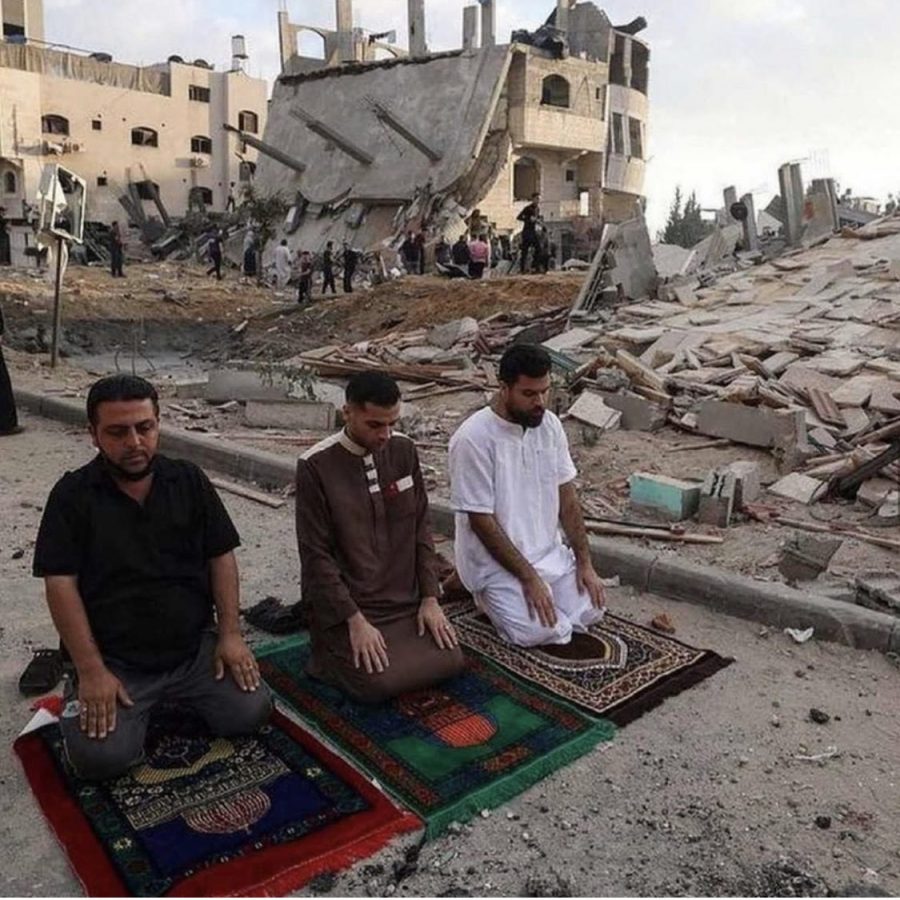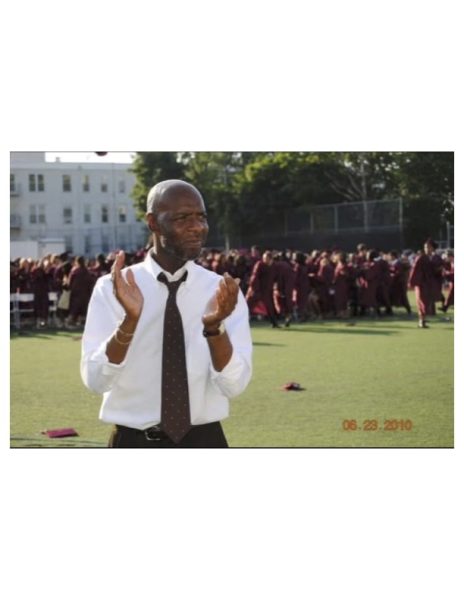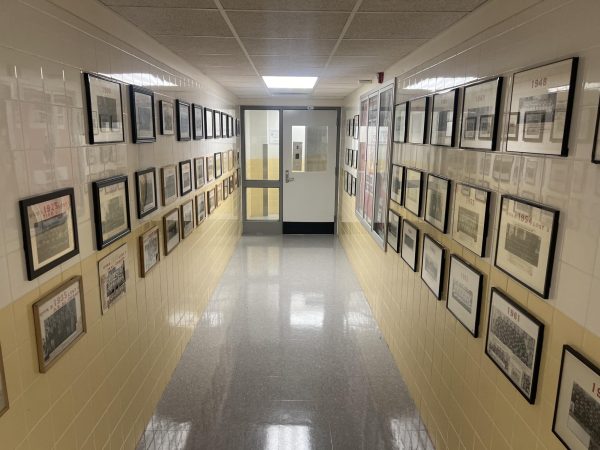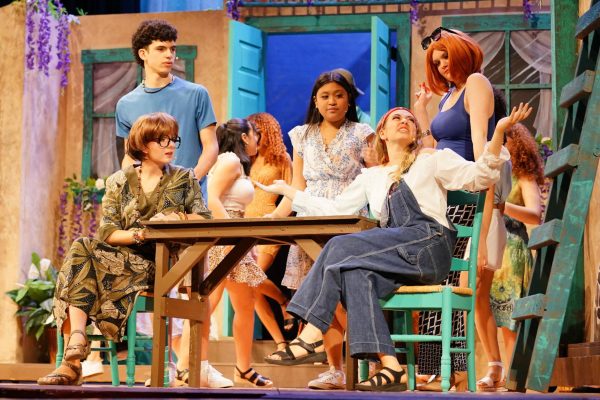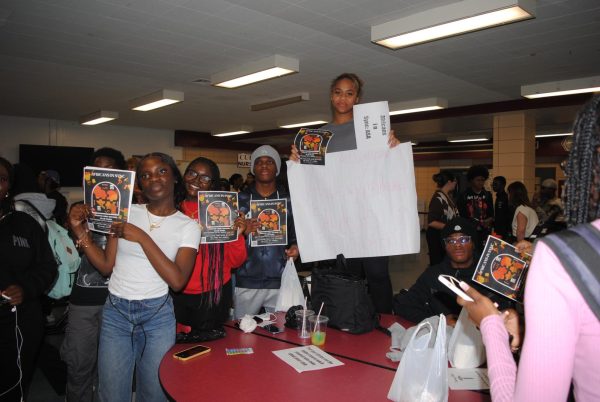The Israel-Palestine Conflict: Muslim Students Association Students Express Their Thoughts
Over the last few weeks, we’ve all seen the Israeli-Palestinian conflict rage on in the East through news headlines, our televisions, or even social media posts. Although it has begun to fade from public view after a recent ceasefire agreement between Hamas and Israel, the videos of Palestinians mourning the deaths of innocents still invoke passionate calls for activism online. While it is less discussed in school, the images and videos of devastation on the Gaza Strip weigh heavily on the minds of many students at Curtis. Fortunately, in a meeting held by the Muslim Student Association club, students were provided with a space to discuss their feelings on the conflict, its impact on their lives, and how they feel it’s being addressed in their community.
How have you felt hearing about this conflict?
“I have actually been aware of this conflict for a few years now. It’s not something new, in fact, it’s been going on for about 70 years, and I’ve always been conflicted about it because I wanted to understand both sides of the argument. But with these recent developments, we’ve seen so much inhumanity and injustice going on by the hands of Israel on Palestinians and while you could have been passive about it before, you just can’t ignore it anymore because there’s literally an ethnic cleansing going on. The fact that these people are majority Muslims makes them our brothers and sisters. We’re supposed to care for each other so it just hurts my heart that I’m not able to do anything other than share resources on social media and educate myself and others on what’s going on so that they could make an impact too.” – Khadija Afonja, Senior
“I think also one of the hardest parts about realizing this is that people that, like you previously thought, were like your friends or acquaintances, don’t share the same views with you on basic humanitarian rights. You have to reach a point where you have to value your morality over your friendships and that means ending some friendships. Because this isn’t just some passive issue. This isn’t just politics, these are human lives. So I think we have to reach a point where we have to sacrifice friendships for what we know is the greater good.” – Khadija Afonja, Senior
“Yeah, I definitely agree. I realized that some people that I thought would share or speak about this topic, didn’t really speak about it, so it hurts when you know you supported them at one point, but they’re not really supporting what the Palestinians are going through. – Hashir Raja, Junior
“It’s very upsetting that the people of Palestine are going through this adversity during this day and age. It is shocking to hear that the Palestinians can’t do anything about this conflict because they are oppressed. I wish that Israelis and Palestinians could try to work something out but it’s not as easy as it sounds. thousands of people are dying every single day and all we can do is post about it.” – Nadia Seidou, Junior
Did you have a space to talk about it in school?
“I haven’t really discussed this topic in my regular classes because I don’t think there was an opening to, but I do have a teacher that supervises the Anti-Defamation League (ADL) club and we’ve talked about this issue there. She isn’t Palestinian or Muslim so I felt it was my responsibility, as a Muslim and as somebody who’s educated on this topic, to shed light on it with my opinion and with resources. Because the majority of teachers at Curtis High School are white and it’s a predominantly white institution, a lot of these issues might not be as important to them as it is to those of us who are directly affected by it. So I think it is important to stress the importance of social issues that matter to you…In my classes, we usually discuss current events, but this was the one thing that we didn’t talk about. I think that’s because there’s a lot of tension associated with it. A lot of people believe that caring about the Palestine movement means you’re against Jewish people or that you’re anti-Semitic. The stress of educating people will allow us to create a space where we’re able to talk about this because people need to know that supporting the freeing of Palestine doesn’t mean you also hate Jewish people. I think it wasn’t brought up to avoid conflict, but at the same time you can’t give people comfort when there are people literally dying in their homes.” – Khadija Afonja, Senior
What do you want people in your community to know? If they’re choosing to stay silent about it or just scared to express their view on the situation, what would you tell them?
“I would tell them to picture their family members experiencing that and whether they would like others to ignore it and stay silent or use their voices before they decide that silence is the best option.” – Khadija Afonja, Senior
“It’s 2021, you shouldn’t be scared to voice your opinion, even if you think you might lose some friends or some people that you think might not like what you say about this.” – Hashir Raja
“Although it’s beneficial that the social media algorithm is aware of these current issues, I do believe that we can do more to handle this situation. One example would be to create advertisements for awareness, reach out to your colleagues about the situation or try to educate others around you.” – Nadia Seidou, Junior
Do you believe it is more of a political issue or a religious issue?
“Overall, I don’t think the targets are Muslims because Palestinians themselves are just a nationality. There are Christian Palestinians, there are Muslim Palestinians, and Palestinians of different religions, so when I initially said, I don’t think it’s a religious issue, I meant that I don’t think people are targeted due to their religion. I think they’re being targeted by the fact that they’re currently inhabiting the same space as the Israelites, so I do believe it is more of a humanitarian crisis, as in people are not attacked solely because of their religion, but the land itself holds a lot of religious significance, which is basically like the driving factor of all of this animosity. The background of it is religious, but the people affected aren’t affected solely due to their religion.” – Khadija Afonja, Senior
How do you feel about the sentiment people have about how US-centric our issues are?
“Yeah, we talked about this last week. On a global level, there seems to be a greater focus on things that happen in Europe or the Americas, but not the Middle East, not Africa, not Southeast Asia. Like during the burning of the cathedral, you had all of these world powers giving their prayers and their attention to France. But with this, even with all of the videos and pictures of death and destruction, there are still politicians that are debating whether it’s important or not. I don’t like comparing worldly issues because death is death. But it seems as though people choose which lives they care about and that’s just not right.” –Khadija Afonja, Senior
“On Instagram, I saw a post where it said, “Hey America your 9/11 is our 24/7. Sincerely, Palestine.” I thought that was really deep because while a lot of lives were lost in 9/11, a lot of lives are being lost in Palestine too and I think that should be taken into account in our daily lives.” – Hashir Raja, Senior
How do you feel the UN has handled this?
“Obviously, Israel has broken so many rules and regulations and the United Nations was made to keep peace throughout the world, so it wouldn’t lead to another World War and they’re not doing what they’re supposed to be doing. They should have held Israel accountable for what they had done. They’re not fighting soldiers against soldiers, it’s soldiers against kids and women and innocent people, you know. The United Nations has to do a better job of keeping Israel in their place.“ – Hashir Raja, Senior
“I think the United Nations has done a horrible job with this. There’s basically no relief sent. There’s been no soldiers sent to help refugees escape from Palestine. There hasn’t been a major effort made to protect the Palestinian lives that are being attacked right now and, even though they make claims about it or they talk about it on social media, they’re not backing it up with action. There’s so many war crimes being committed, but there’s no effort being made to stop this until it’s too late. It’s just so reminiscent of World War Two. The United Nations is supposed to be there.” –Khadija Afonja, Senior
“The Prime Minister of Turkey was like if Palestine’s issue doesn’t become bigger in the United Nations, we will just create our own Muslim United Nations-type reboot. And he was actually really serious about it too. I don’t like to get political, but the Prime Minister of Turkey and the Prime Minister of Pakistan and many other leaders are trying to bring out this issue of Israel breaking so many rules and it’s not being brought up to attention.”-Hashir Raja, Senior
Which solution do you think could work?
“I’ve heard of this common solution, the two-state solution where half of the land goes to Israel and half of the land goes to Palestine. But what’s going on is basically the result of that when you have these two different civilizations living together, it’s gonna end in genocide. So I don’t think this issue can be resolved unless one side has complete control of the area because it has a lot of religious significance. It’s important to a lot of major religions like Islam, Christianity, and Judaism which is the main motivator for this conflict. A lot of people think that they are owed this land, so I genuinely don’t think anything is going to change until one side is clearly in possession of the land, which is why I think there’s a quote going around where Israel is saying that the bombs are not going to stop until it’s completely silent, as in every single Palestinian is dead because they won’t stop until they have complete control over the land.” – Khadija Afonja, Senior
“Yeah, I think it’s especially hard because it’s like both sides feel as if they’re owed land because it has a lot of significance to them. So it’s like you can’t really say, well, these people deserve it while these people don’t because I don’t think there’s always going to be a lot of anger and hatred, but dividing the land doesn’t work either, so I generally don’t know a solution that would work.” – Hashir Raja, Senior
Even if coverage surrounding Palestine and Israel slowly fades away in the media, it’s clear that this situation isn’t a trend or a one-and-done situation. It’s an ongoing struggle between two factions that, unfortunately, puts innocent Palestinians in the crossfire. Continued discussions and calls for activism, whether its in club spaces or on social media, help maintain discussion in our communities that honor the lives of our fellow human beings, no matter where they are.


